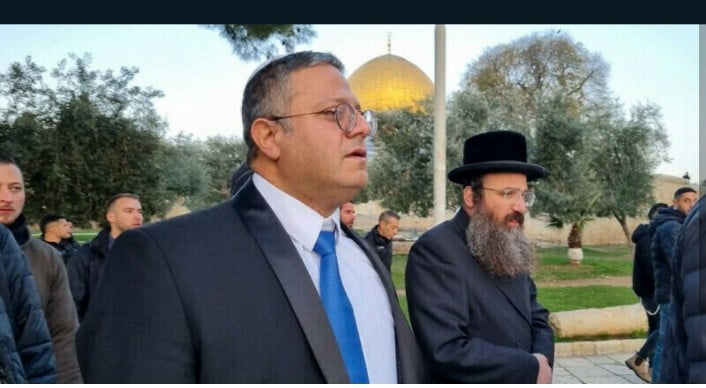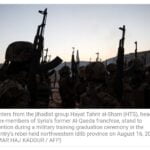A recent outburst by Itamar Ben Gvir, Israel’s national security minister, asserting that his rights in the occupied West Bank supersede those of Palestinians, has incited condemnation from the United States and garnered worldwide attention. The US State Department has vigorously denounced what it termed “inflammatory comments” and condemned “all racist rhetoric,” highlighting the gravity of Ben Gvir’s controversial statements.
In remarks to state television, Ben Gvir asserted, “My right, and that of my wife and children, to travel on the roads of Judea and Samaria, is more important than the freedom of movement of Arabs.” These comments, using Israel’s terminology for the West Bank, have ignited a firestorm of criticism on digital platforms.
Labeling the coverage as “fake news,” Ben Gvir has refuted the allegations and assailed the “radical left” for purportedly misrepresenting his statements. On social media platform X (formerly Twitter), he directed fierce criticism towards Palestinian-American model Bella Hadid, who had reposted a clip of his comments on Instagram, where she commands an audience of 60 million followers. Hadid captioned the video with the assertion, “In no place, no time… should one life be more valuable than another’s.”
The reverberations of Ben Gvir’s remarks have reverberated beyond digital realms, sparking condemnations from the Palestinian Authority, which characterized them as “racist and heinous,” and castigated the minister as a “fascist.”
At the helm of the ultranationalist “Jewish Power” party, also known as Otzma Yehudit, Ben Gvir espouses a platform steeped in racist and anti-Arab policies. His prior convictions for inciting racism and supporting terrorism underscore the contentious nature of his stance.
Appointed a top minister by Prime Minister Benjamin Netanyahu in December, Ben Gvir commands a seat in the security cabinet and oversees both domestic police and Israel’s militarized border police force operating in occupied East Jerusalem and the West Bank.
The timing of Ben Gvir’s provocative assertions aligns with escalating violence, as Palestinian gunmen perpetrated attacks that resulted in the deaths of three Israelis. These incidents, including an attack close to Ben Gvir’s residence in a Jewish settlement near the West Bank city of Hebron, prompted heightened security measures and further restrictions on Palestinian movement.
Amid the tumult, Israeli Prime Minister Netanyahu expressed steadfast support for Ben Gvir, asserting, “Israel allows maximum freedom of movement in Judea and Samaria for both Israelis and Palestinians.” Netanyahu contended that Palestinian terrorists exploit this freedom to target Israeli civilians. A statement from his office elaborated that recent attacks prompted “special security measures in these areas,” underscoring that Ben Gvir’s assertion on the precedence of the right to life over freedom of movement resonates in this context.
The situation underscores the intricate and contentious dynamics at play in the Israeli-Palestinian conflict, where violence and tensions persist, claiming the lives of Palestinians, Israelis, and foreign nationals alike.






